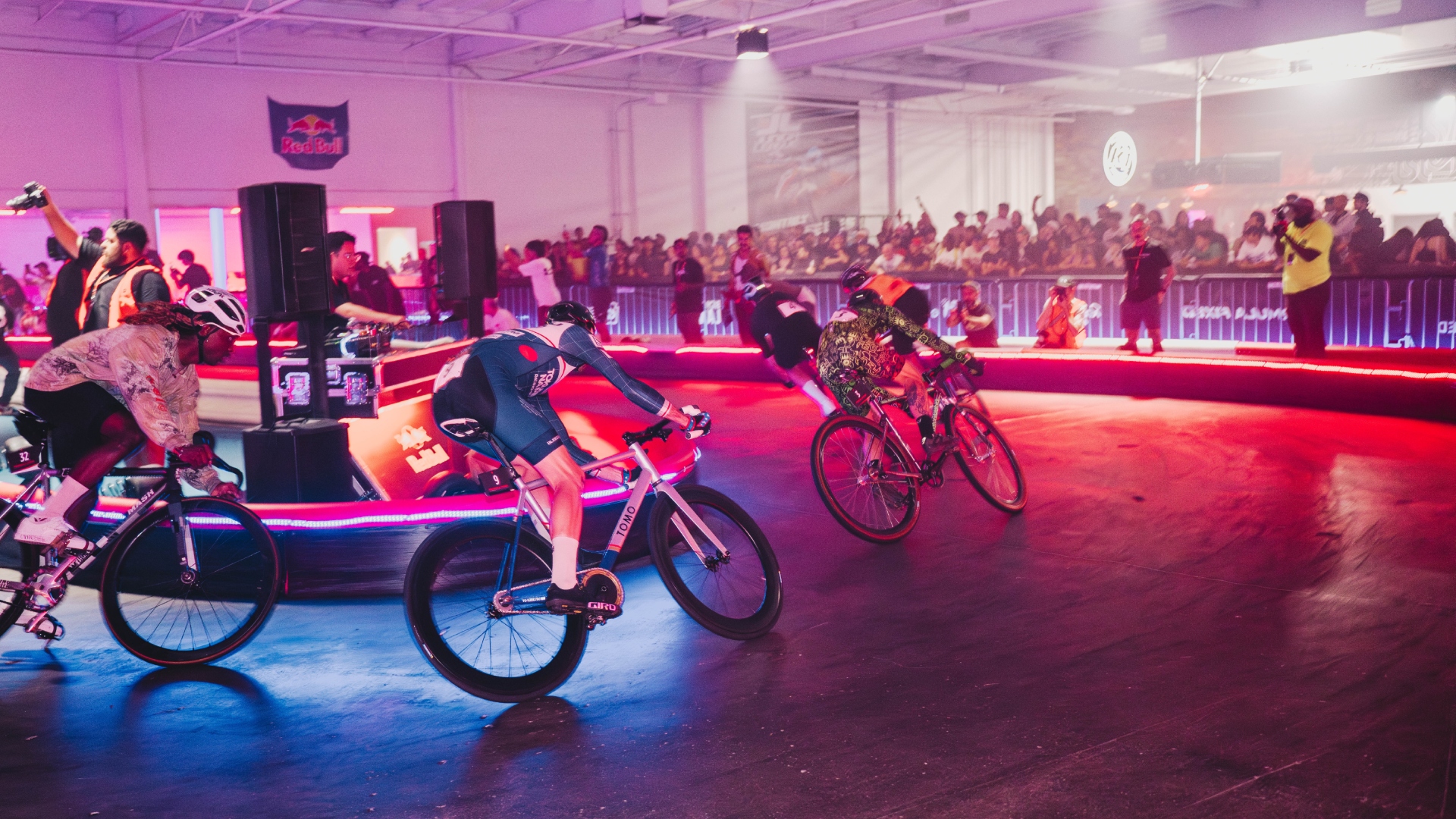
It's no secret that American interest in skinny-tyre bike racing has been fading for some time. Still, one organiser after another claims to have the answer to revive the sport's heydays of the 1980s and early aughts. The newest entrant in this endeavour is something called Formula Fixed, whose organisers believe that the elixir to America’s bike racing problem is high-speed, fixed-gear criterium racing in a ticketed stadium setting.
Touting itself as a "cultural movement on wheels," Formula Fixed positions itself at the intersection of street culture, gaming and entertainment with a format that is “broadcast-friendly, spectator-first, and built to create viral moments.”
Inspired by golf’s TGL and basketball’s Unrivaled, the series promises to deliver “high-energy, immersive experiences that connect digital-native fans to real-world action.”
Its vision is ambitious, its language confident, but haven’t we heard it this pitch before? Just a few short years ago, the National Cycling League (NCL) burst onto the scene with similar ambitions, city-based franchise teams, huge celebrity-backed investments and a big prize pot all meant to revolutionise American cycling. Yet that series barely lasted a season, collapsed under the weight of poor execution, internal turmoil and the sport’s continued struggle to find a mainstream audience in the U.S.
“I think Americans will care about bike racing if they can see themselves doing it,” co-founder Clare Grady tells Cycling Weekly. “We want to be the series that is going to give a kid their LeBron James of cycling that they're looking up to.”
Formula Fixed claims it’s learning from others’ failures and taking a new approach. Instead of leaning on traditional cycling, it’s looking elsewhere. With roots in fixed-gear street racing and the bike messenger scene, its aesthetics are more aligned with skateboarding than the Tour de France. In doing so, the series is courting a younger, digital-native audience who may have never even heard of Lance Armstrong or Greg LeMond.
"94% of people know how to ride a bike, but our ability to convert them into fans or consumers of cycling as a sport is fundamentally broken," says James Grady, Co-Founder of Formula Fixed. "We're not here to tweak the old model. We're here to tear it down and rebuild it from scratch with culture, inclusivity, and energy at the core."
Meet Formula Fixed
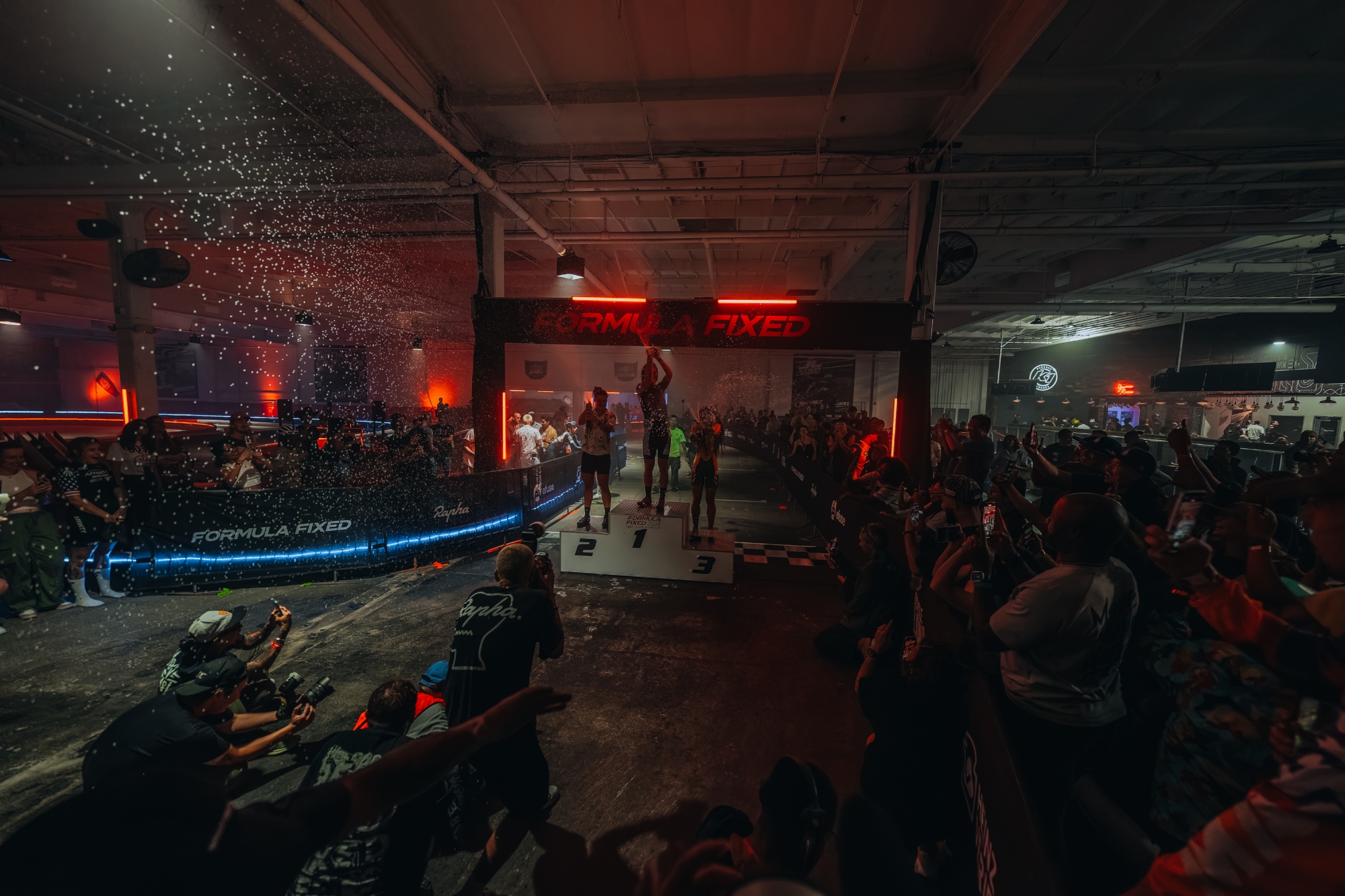
Formula Fixed is an all-new indoor bike racing series starting in late 2025, with a full season coming in early 2026 with a set cast of riders. Participants will race on fixed-gear bikes on tight, twisty tracks, designed for both an in-person and online audience.
The races will consist of short-track and stadium crit formats. The short-track race is held on a course between 400 and 800 metres and would be an elimination race, meaning that the last person(s) across the finish would be eliminated, and this would continue until only a handful of winners remain. The stadium crit format is essentially a criterium held inside a sports venue, where fans can see the entire course and all the action from start to finish.
Formula Fixed events will take place at indoor venues across the U.S., beginning with two qualifying events—on the East and West Coasts—in September 2025. Top finishers, along with selected auto-qualifiers, will advance to conference play and a championship slated for early 2026.
Meet the Organisers
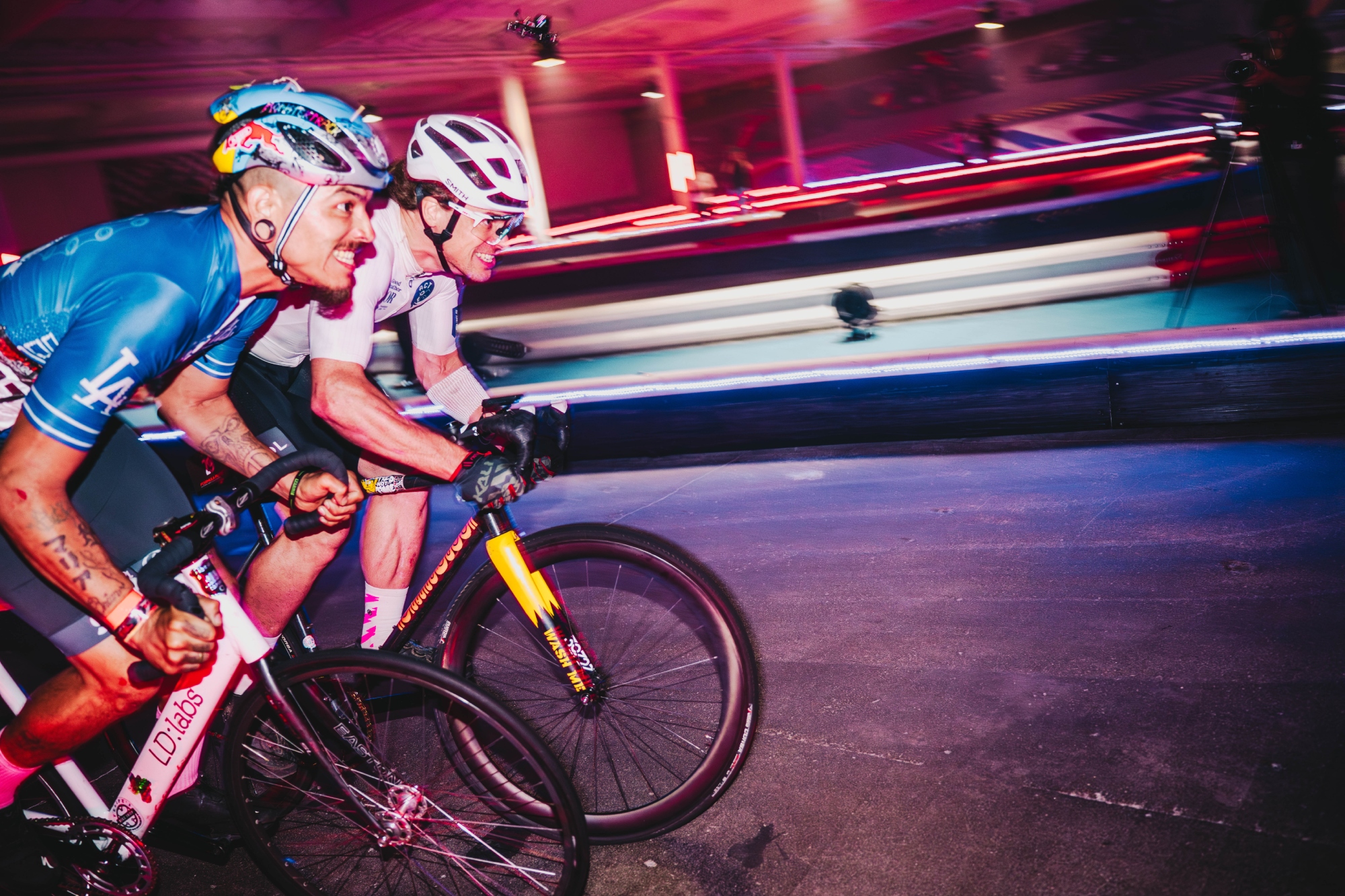
The organisers behind Formula Fixed are James and Clare Grady, who have been putting on bike races in the San Francisco area since 2014, including the highly popular Mission Crit. Borrowed from the Red Hook Criterium concept and brought to the streets of San Francisco, Mission Crit saw seven years of success, peaking with some 280 racers from 10 countries and approximately 6,000 spectators.
”What we saw was this trajectory of continued growth and interest in what we were doing, but the math didn't make sense,” Clare says. Between costly city permitting fees, race logistics, marketing and promotion, putting on an event on American city streets is a significant financial undertaking.
“We started thinking about the format of the whole thing and the big missing piece seemed to be the fan experience. You can't charge someone to spectate a race on city streets, and as a fan, you wouldn't want to pay for that either because the experience is not that great…you can only see less than 10% of the action.”
Playing with new racing formats, the couple partnered with media powerhouse Red Bull in 2021 to put on short-track races on go-kart tracks, similar to what 8Bar and Rad Race have popularised in Germany. Then, in fall 2024, they held a proof-of-concept event at a Formula 1 racing facility in California. It was a tournament-style event, ensuring all racers competed in at least three heats. There were women’s and men’s categories, with each field starting with 48 riders, 24 of whom advanced to the finals.
Spectator tickets were sold both pre-sale and at the door. Online, the event earned a reach of 5.6 million and 8.1 million impressions without spending even a dollar on paid media. Notably, they secured non-endemic sponsors, with Kraft Heinz Away From Home as the presenting sponsor, demonstrating mainstream appeal.
The September qualifiers will adopt this same tournament-style format, capped at 72 riders per category. The top 24 from each category will advance to the 2026 series.
“We're really working to present a product that is in line with what you would expect from other professional sports. A lot of what we did in the fall had to do with storytelling and just trying to build up mythology around our racers,” Clare says. “What we see increasingly [in sport in general] is that people are coming to fandom because they like a particular athlete. That’s really something we're leaning into and having a smaller pool of athletes, we think, provides us an opportunity to highlight these individuals.”
Who’ll be racing?
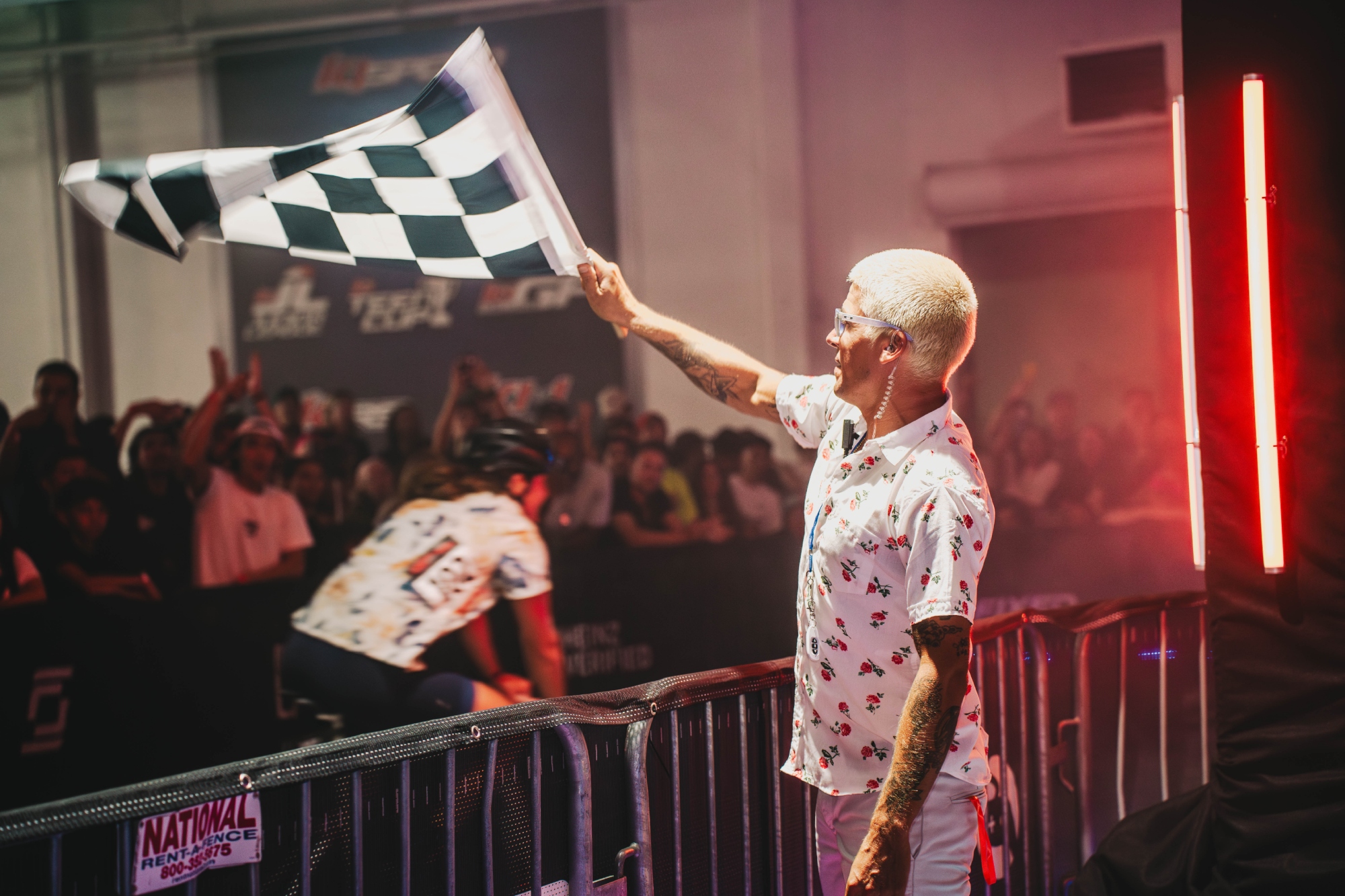
Aside from those who live in proximity of a velodrome, there are few opportunities for most American cyclists to race fixed-gear—let alone in a street-style setting. So where are these athletes coming from?
“When we look at scouting, we've got our eyes on everything that's coming out of the bike messenger community, the rare clubs that are focused on fixed-gear riding, crit racers and another thing that we've discovered, is that ‘cross racers, mountain bikers and BMXers are going to be good candidates for this discipline because of the handling element,” Clare said, adding that velodrome racing is significantly different than the twisty, turny nature of street-style racing where handling trumps pure watts.
Clare revealed that while athletes will have to pay their own way to the qualifying events, the “pro” athletes selected for the 2026 series will get their expenses paid.
What sets Formula Fixed apart?
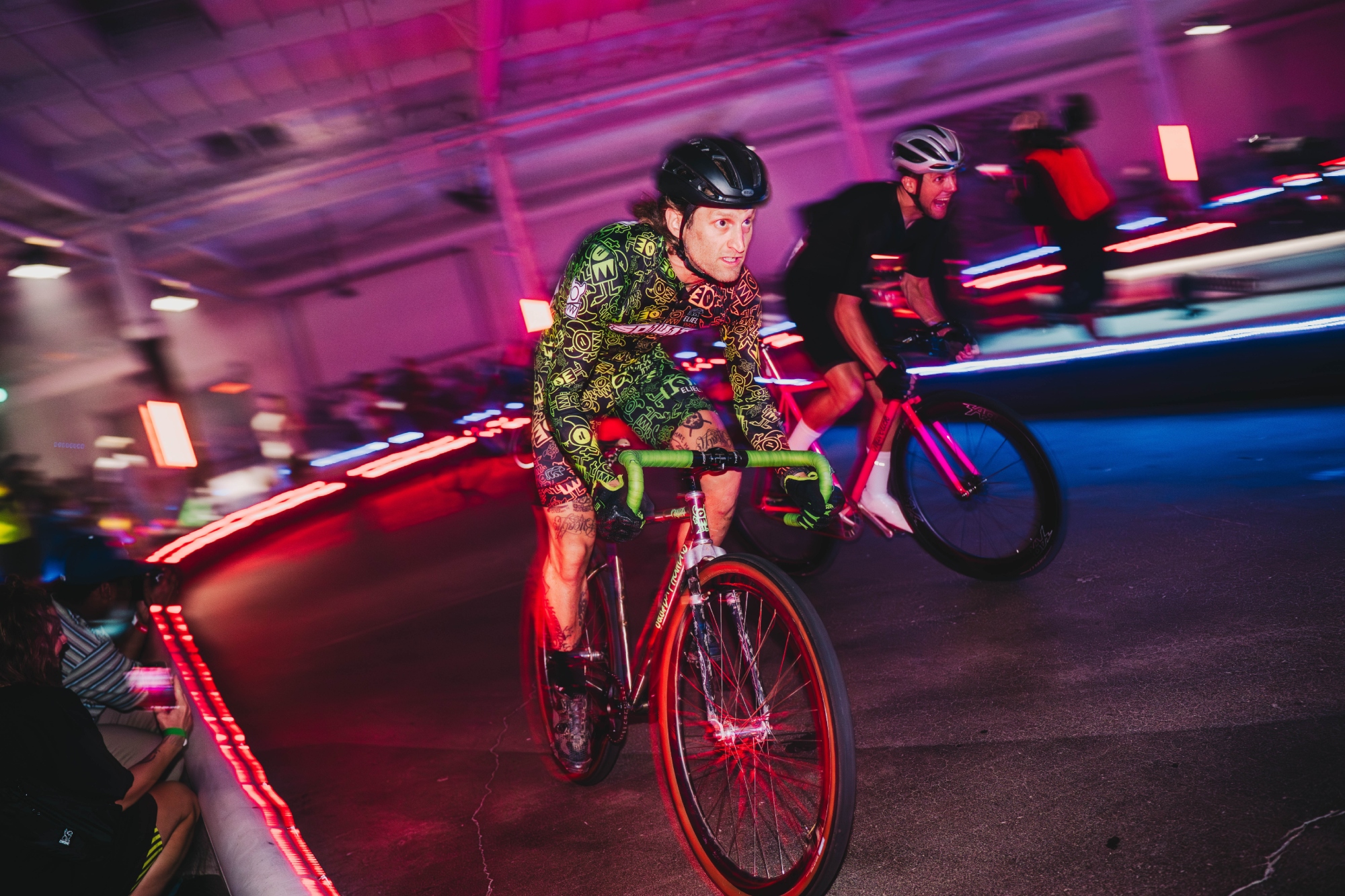
When asked why they believe Formula Fixed will succeed where others have failed, Clare Grady was quick to rattle off the series' strengths.
Formula Fixed is a venue sport:
“There are a number of unique things about Formula Fixed. The venue is a really key part of it. [The NCL] didn't have a front door and so, no ticket sales. They were also racing on city streets, having to navigate city governments and paying the police out the nose.”
Formula Fixed is not traditional bike racing:
“The second thing is that there is a really unique opportunity with the culture of fixed-gear cycling. It’s deeply tied to urban culture, so what we see is that it’s far more diverse in terms of gender and ethnicity and who rides these bikes.”
Formula Fixed is made for broadcast:
A spectator-first, made-for-broadcast approach is crucial, organisers say, citing it as a key reason the once-popular Red Hook Criterium eventually fizzled out.
“They were drawing 10,000 people per race – that’s fantastic! But if you’re not going to broadcast, then it becomes harder and harder for a big-dollar sponsor to continue that investment,” Clare said.
Formula Fixed is genuinely American:
“We're really interested in leaning into the Americanness of this discipline. Fixed-gear (street) racing was born in Brooklyn, New York. It is a uniquely American type of cycling, and we love that. It's like a love letter to the cities of the U.S.”
Interested in being a fixed-gear pro? Registration for the September qualifiers is now open. Visit FormulaFixed.com to learn more and sign up.







